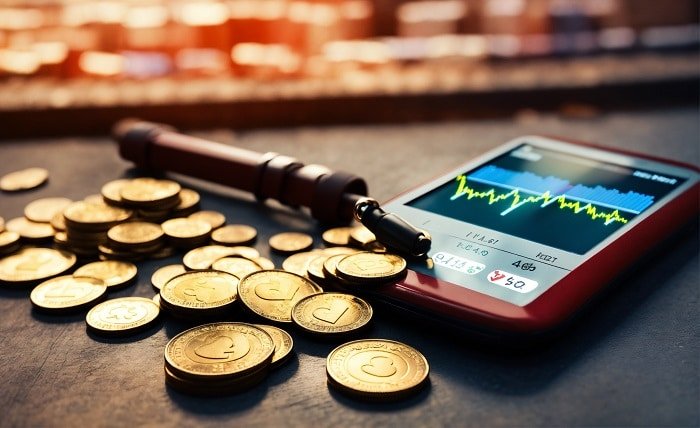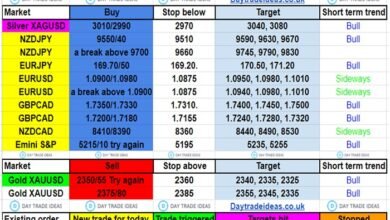
Introduction:
In the foreign exchange market, the exchange rate is defined as the rate at which one currency can be exchanged for another. Understanding exchange rates is essential for anyone involved in international trade, finance, or travel. This guide will delve into the concept of exchange rates, their determinants, and their role in the global economy.
The Basics of Exchange Rates:
At its core, in the foreign exchange market, the exchange rate is defined as the price of one currency in terms of another. For instance, if the exchange rate between the US dollar (USD) and the Euro (EUR) is 1.15, it means one USD can be exchanged for 1.15 EUR. Exchange rates are quoted in pairs, with the base currency listed first and the quote currency listed second.
Exchange Rate Mechanisms:
Various factors influence exchange rates in the foreign exchange market. Supply and demand dynamics, economic indicators, central bank policies, geopolitical events, and market sentiment all play a role in determining exchange rate movements. Governments and central banks may also intervene in the foreign exchange market to stabilize or influence their currency’s value.
Fixed vs. Floating Exchange Rates:
Exchange rate systems can be classified into fixed or floating regimes. In a fixed exchange rate system, currencies are pegged to a stable asset like gold or another currency. Conversely, in a floating exchange rate system, exchange rates are determined by market forces without intervention from authorities.
Exchange Rate Determinants:
The exchange rate in the foreign exchange market is defined by various factors. Economic fundamentals such as inflation rates, interest rates, economic growth, and trade balances influence currency values. Political stability, geopolitical tensions, and market speculation also impact exchange rates.
Exchange Rate Fluctuations:
Exchange rates are highly volatile and subject to frequent fluctuations in the foreign exchange market. Factors such as economic data releases, geopolitical events, central bank announcements, and market sentiment can cause rapid changes in currency values. Traders and investors often use technical and fundamental analysis to forecast exchange rate movements.
Impact on International Trade:
Exchange rates play a pivotal role in international trade by affecting the competitiveness of exports and imports. A weaker domestic currency makes exports cheaper and more competitive in foreign markets, while imports become more expensive. Conversely, a stronger currency may hinder exports but make imports more affordable.
vedu app is your ultimate educational tool for interactive learning, offering a wide range of courses, live classes, and study materials. Enhance your knowledge and skills with Vedu App today!
Influence on Investment Decisions:
Exchange rates influence investment decisions by affecting the returns and risks associated with foreign investments. Investors consider exchange rate movements when allocating assets across different currencies and markets. Exchange rate fluctuations can amplify or mitigate investment returns, making currency risk management crucial for investors.
Role in Economic Policy:
Governments and central banks use exchange rate policies to achieve various economic objectives. A depreciating currency can boost exports and stimulate economic growth, while an appreciating currency may help curb inflation and maintain price stability. However, policymakers must balance these objectives to avoid adverse consequences on trade balances and competitiveness.
Exchange Rate Volatility and Risk Management:
Exchange rate volatility poses risks to businesses engaged in international trade and finance. Companies may implement hedging strategies such as forward contracts, options, and currency swaps to mitigate exchange rate risk. Effective risk management practices help businesses safeguard their profitability and competitiveness in global markets.
Future Trends and Challenges:
In the ever-evolving landscape of the foreign exchange market, exchange rates will continue to be influenced by technological advancements, geopolitical developments, and economic shifts. Emerging trends such as digital currencies, globalization, and trade tensions will shape the dynamics of exchange rate movements and present new challenges for market participants.
Conclusion:
In the dynamic realm of the foreign exchange market, the exchange rate is defined as a fundamental determinant of currency values and plays a crucial role in global trade, investment, and economic policy. Understanding the complexities of exchange rates empowers individuals and businesses to navigate the intricacies of international finance effectively.
Learn how to earn tuffer rewards with our comprehensive guide. Discover tips, strategies, and the best ways to maximize your earnings through the Tuffer platform. Start earning today!
FAQ:
1.What factors influence exchange rates?
Economic indicators, central bank policies, geopolitical events, market sentiment, and supply and demand dynamics all influence exchange rates in the foreign exchange market.
2.How do exchange rates impact international trade?
Exchange rates affect the competitiveness of exports and imports, with a weaker currency making exports cheaper and imports more expensive, and vice versa.
3.What are the risks associated with exchange rate fluctuations?
Exchange rate volatility poses risks to businesses engaged in international trade and finance, impacting profitability, competitiveness, and investment returns.
4.How do governments and central banks intervene in the foreign exchange market?
Governments and central banks may intervene in the foreign exchange market through policies such as currency pegs, interest rate adjustments, and foreign exchange market interventions.
5.What are some strategies for managing exchange rate risk?
Hedging strategies such as forward contracts, options, and currency swaps are commonly used by businesses to mitigate exchange rate risk and protect against adverse currency movements.





